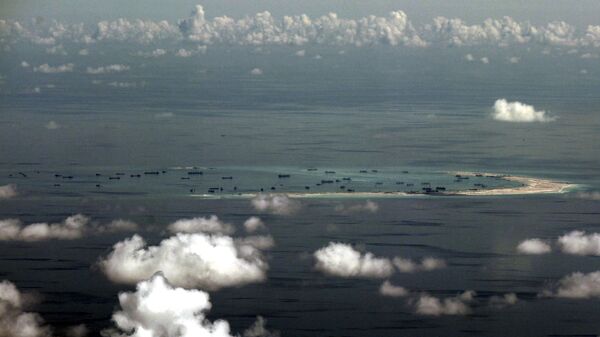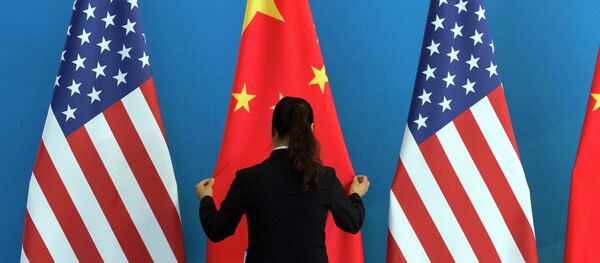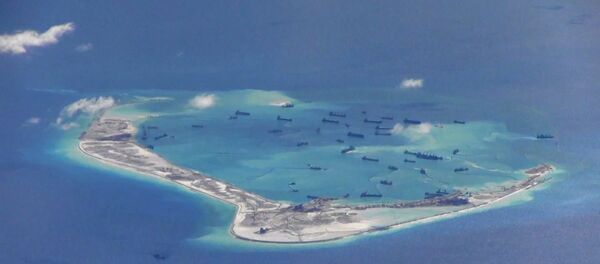In an interview with Press TV, American political analyst and chief editor of AttacktheSystem.com Keith Preston pointed out that Washington and Beijing are pursuing opposite foreign policy goals.
"China and the United States are polar opposite in terms of their foreign policy orientation. The United Sates has a very internationalist, globalist, imperialist approach to foreign policy," Preston stressed, commenting on the recent US Secretary of State John Kerry's critical statement regarding China's artificial islands constructing in the South China Sea.
China's senior military officials, namely Admiral Wu Shengli, have previously asserted in official statements that China's construction work in the South China Sea will not threaten freedom of navigation and overflights.
"Under international maritime conventions, China has responsibilities to perform rescue operations in the South China Sea… So it is very necessary to construct or upgrade infrastructure on islands and reefs in the South China Sea, as we can then send rescue ships and planes there in case of emergency," Yin Zhuo, Director of the Expert Consultation Committee of the People's Liberation Army Navy, told Chinese journalists last week.
However, Washington continues to accuse Beijing of acting "out of step with both the international rules and norms."
"What is interesting about this is that the United States is somehow accusing the Chinese of overstepping its boundaries… because when we compare China's foreign policy with the foreign policy of the United States, China is a far less aggressive, far less expansionist nation," Preston highlighted.
Indeed, maritime disputes over the South China Sea and its reefs have been lasting for decades between China, the Philippines and four other countries, prompting experts to admit that there is still no established status quo in the region.
"This is a conflict between the foreign policy objectives of the two countries… the United States has a very unilateral, very globalist, very internationalist foreign policy that does reserve the right to intervene anywhere it wants," Preston noted, adding that China on the other hand is very "isolationist" and very much concerned about its regional interests and own sovereignty.
Paradoxically, despite the fact the countries are crossing swords on the South China Sea issue, they remain interdependent, having plenty of shared interests.
"American business corporations are very dependent on Chinese labor for manufacturing, and a lot of goods that are sold in American stores are imported from China," the analyst pointed out, stressing that in its turn Chinese businessmen are "also very dependent on the United States as their major export market."
So, at the very same time the countries are close partners and fierce antagonists. The question remains open whether mutually beneficial partnership will outweigh Washington's aggressive globalist ambition.





